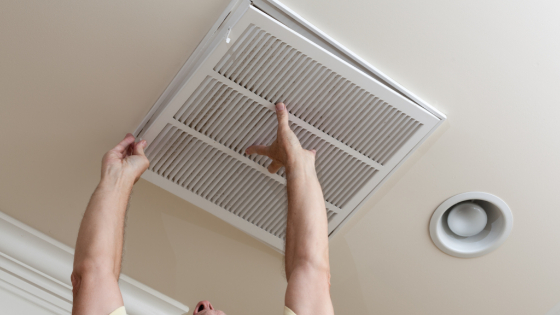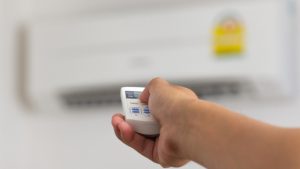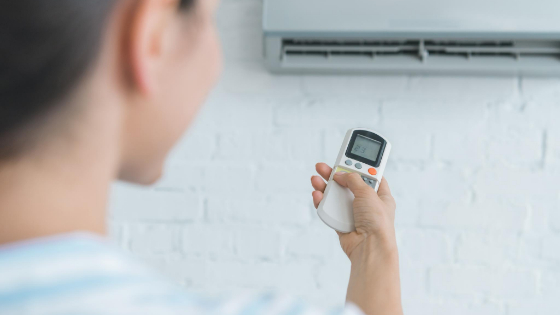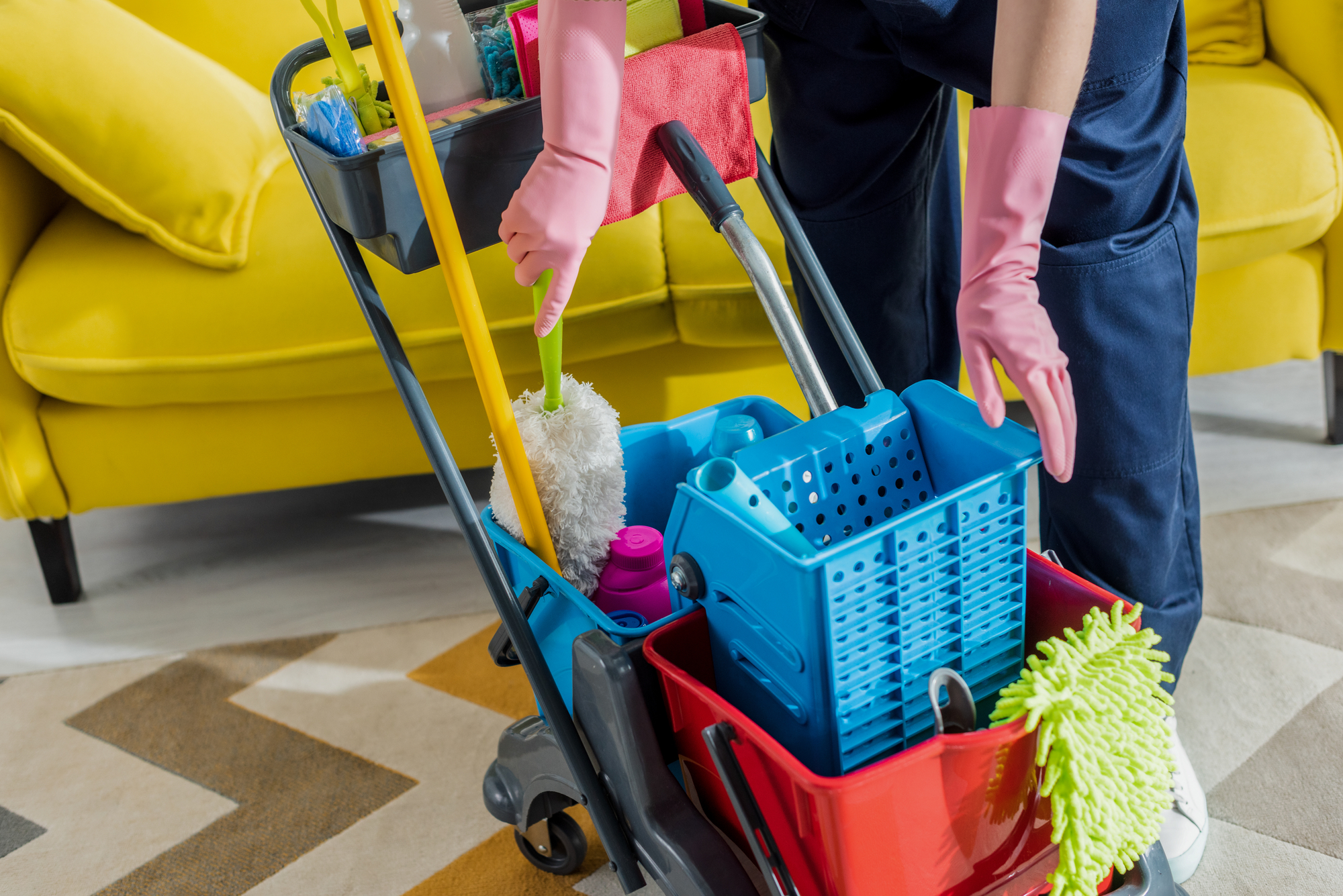-
Maximizing Energy Efficiency with Ducted Reverse Cycle Air Conditioning

Ducted reverse cycle air conditioning is a popular option for many homeowners in Adelaide, thanks to its ability to provide both heating and cooling with one system. In addition to its versatility, ducted reverse cycle air conditioning is also known for its energy efficiency. In this article, we’ll explore some tips for maximizing the energy efficiency of your ducted reverse cycle system, starting with proper installation.
Install Ducted Reverse Cycle AC Correctly
Proper installation of your ducted reverse cycle air conditioning system is key to ensuring its energy efficiency. A professional installation technician can ensure that your system is installed correctly, with the right size and design of ductwork for your home. This will ensure that your system operates efficiently and effectively, providing optimal heating and cooling while using the least amount of energy. If you want to install ducted reverse cycle AC, contact a professional and reliable airconditioning company.
Regular Maintenance
In addition to proper installation, regular maintenance is also important for maintaining energy efficiency. Your system’s filters should be cleaned or replaced regularly to ensure optimal airflow and reduce strain on the system. A professional technician can also perform an annual check-up to inspect and tune-up your system, making sure it’s running at its best.
Sealing Ductwork
Leaky ductwork can waste energy and reduce the efficiency of your ducted reverse cycle air conditioning system. To prevent this, it’s important to have your ductwork inspected and sealed regularly. A professional technician can identify and repair leaks, ensuring that your system operates efficiently and effectively.
Efficient Usage
Using your ducted reverse cycle system efficiently can also help you save energy and money. One way to do this is to use programmable thermostats to set temperature zones for different areas of your home. This allows you to heat or cool only the areas you need, rather than the entire home. You can also set your thermostat to a slightly higher temperature in summer and a slightly lower temperature in winter to further reduce energy usage.
Choosing the Right System
When choosing a ducted reverse cycle system, it’s important to select one that is the right size for your home. A system that is too small will have to work harder to cool or heat your home, using more energy in the process. A system that is too large can be wasteful, as it will cycle on and off more frequently than necessary.
Conclusion
Proper installation, regular maintenance, sealing ductwork, using your system efficiently, and choosing the right system are all important factors in maximizing the energy efficiency of your ducted reverse cycle air conditioning system. If you’re interested in installing a ducted reverse cycle AC system or want to schedule maintenance for your existing system, contact a professional technician in Adelaide today.
-
The Different Types of Air Conditioning Systems
 When it comes to cooling your home or office, there are many types of air conditioning systems to choose from. Each type of system has its own unique features and benefits, so it’s important to understand the differences between them before making a decision. The air conditioning system at Airwarsales can give you a great cooling machine that can provide comfort at your home. In this article, we’ll explore the different types of air conditioning systems available and their advantages.
When it comes to cooling your home or office, there are many types of air conditioning systems to choose from. Each type of system has its own unique features and benefits, so it’s important to understand the differences between them before making a decision. The air conditioning system at Airwarsales can give you a great cooling machine that can provide comfort at your home. In this article, we’ll explore the different types of air conditioning systems available and their advantages.Central Air Conditioning
Central air conditioning is a popular type of system that uses ducts to distribute cool air throughout your home or office. This type of system can be more expensive than other types, but it provides greater comfort and efficiency. Central air conditioning systems are also quieter than window units because the compressor is located outside.
Window Air Conditioners
Window air conditioners are a common type of air conditioning system used in single rooms. They are affordable and easy to install, but they may not be powerful enough to cool larger spaces. Window air conditioners are also not as energy-efficient as other types of systems.
Ductless Mini-Split Systems
Ductless mini-split systems are a good option for homes or offices without ductwork. They are similar to central air conditioning systems, but they don’t require ducts to distribute cool air. Instead, they use a small outdoor unit and one or more indoor air handlers to cool specific areas. These systems are energy-efficient and easy to install.
Portable Air Conditioners
Portable air conditioners are a versatile and easy-to-move option for cooling individual rooms. They don’t require permanent installation, making them a good choice for renters or those who don’t want to modify their homes or offices. However, they may be less efficient than other types of systems and can be noisy.
Hybrid Air Conditioning Systems
Hybrid air conditioning systems use both electric and gas power to provide cooling. These systems are more energy-efficient than traditional systems and can save you money on your energy bills. Hybrid systems are also better for the environment because they use less energy.
Geothermal Air Conditioning Systems
Geothermal air conditioning systems use the temperature of the earth to cool your home or office. These systems are very energy-efficient and can save you money on your energy bills. They are also environmentally friendly because they use the natural heat of the earth.
Conclusion
Choosing the right type of air conditioning system depends on your specific needs and budget. Central air conditioning is ideal for whole-house cooling, while window air conditioners are a good option for single rooms. Ductless mini-split systems are great for homes or offices without ductwork, and portable air conditioners are easy to move from room to room. Hybrid and geothermal air conditioning systems are also energy-efficient and environmentally friendly options. Consider your needs and budget when choosing the right air conditioning system for your home or office.
-
Common Mistakes That Can Ruin Your Coffee and What You Should Do Instead
Coffee is a drink that has been around for centuries. It is not just the caffeine and energy one may get from it there are many other benefits to coffee.
It is not surprising to see people drinking coffee every day. Recent studies show that with how many brands and flavor types there are, people continue to drink it. One might think that coffee isn’t bad for you as long as you’re buying a quality brand but with all the different varieties, how do you know what’s best?
There are many tips and tricks when it comes to drinking coffee like using a ceramic cup instead of paper cups or getting your coffee at home in a french press rather than from a drive-thru.
How to Select the Right Beans for Your Next Order
No two coffee drinkers share the same taste, and when it comes to ordering coffee beans for your next order, you might find yourself in quite a dilemma.
Some people prefer to enjoy their coffee hot. Others love iced coffees. Some people drink only freshly brewed coffee and others go for cold brew. What’s the best type of beans for your next order?
There are many types of beans that you can choose from, but we’ll give you some suggestions below on what might be best suited for your preferences:
- If you like hot coffee but don’t want to sacrifice taste, try Colombian light roast or a medium dark roast such as Indonesian or Ethiopian. These are medium-bodied coffees that won’t be too strong or too mild.
- Espresso fans will enjoy Guatemalan or Costa Rican varieties. These rich coffees pack a punch and are perfect for those who like their morning joe with milk and sugar iced espresso drinks or those who enjoy boldly
The way that we make our coffee can have a huge impact on how we feel throughout the day. So, it might seem like a simple task to make coffee but in reality, there are many different variables that go into making the perfect cup of coffee. We may not know all the information about what goes into making coffee, but we know enough to get started!
How to Store Coffee Properly So It Will Stay Fresh & Taste Amazing
If you enjoy the taste of freshly ground coffee, then you know that a large part of the enjoyment is that fresh smell. When the coffee starts to lose its flavor, it’s time to replace it.
The best way to store ground coffee is in an airtight container in a cool place away from direct sunlight and other strong smells.
It’s also important not to scoop too much into your grinder at one time. This will lead to oxidation and can shorten the shelf life of your coffee beans.
How to store coffee properly:
- Store whole bean coffee in an airtight container in a dark, cool place.
- Use an airtight container and avoid storing coffee near heat sources.
- Use a container that will keep light from penetrating it because light breaks down the quality of the coffee beans.
- To make sure your storage area is cold enough, check to ensure that the temperature drops below 68°F or 20°C for at least two hours daily if possible.
Which Types of Water Are Best For Brewing Perfect Coffee?
Brewing coffee is a simple task that can be done by anyone. However, the quality of coffee depends on the water used for brewing. Tap water or filtered water?
Are you looking for the answer to this question? If so, then keep reading because we are going to give you some information that can help you select the best type of water for your drip coffee.
Tap water and filtered water both have many different benefits and drawbacks in regard to brewing quality and taste. For example, tap water is much cheaper than filtered air but it also contains chlorine which makes it unsuitable for brewing coffee. Filters are more expensive but they remove harmful elements like chlorine and other contaminants, which make them perfect for brewing a cup of premium drip coffee.
-
The Power of Caffeine in your Body and How it Can Affect Your Daily Routine

Caffeine is a stimulant that is found in plants, such as coffee beans. It is a substance that can be consumed for its stimulant effects.
It has been used for centuries to help people stay awake and alert. The consumption of caffeine was documented as early as the 14th century in the form of tea leaves and coffee beans.
Caffeine has many benefits such as: reducing fatigue, improving mood, and boosting energy levels.
There are two main forms of caffeine: naturally occurring caffeine and synthetic caffeine. Naturally occurring caffeine can be found in coffee beans, tea leaves, cocoa beans, and kola nuts. Synthetic caffeine can be found in cola drinks or energy drinks.
Caffeine is a naturally occurring chemical that stimulates the central nervous system. It is found in many drinks, especially coffee and tea.
Caffeine is a stimulant that can cause increased alertness and wakefulness. It can also help to improve mood and focus.
Caffeine can be addictive and people should start with small doses to see how it affects them before they consume more than 400mg of caffeine per day, which is equivalent to four cups of coffee.
The Science Behind Caffeine in the Body
Caffeine is a drug that is usually consumed by people in the form of coffee, tea, or soda. Caffeine stimulates the brain and increases alertness.
This section will cover what caffeine does to the body and how it affects our moods. It will also cover how caffeine can be beneficial in certain situations and what side effects it might have.
Caffeine has been shown to increase focus, attention span, and memory, as well as improve moods in some cases. The most common side effect of caffeine consumption is insomnia.
Caffeine is a stimulant found in coffee, tea, and other beverages. It is the most commonly used psychoactive drug in the world.
Caffeine is a stimulant that increases alertness and reduces fatigue. When caffeine enters the body, it blocks adenosine receptors which are responsible for slowing down nerve cells. This causes an increase in catecholamine levels which increases blood pressure, heart rate, and respiration. Caffeine also decreases cyclic GMP levels which helps to relax muscles and increase mental clarity.
Caffeine 101 – Benefits & Effects on the Body

Caffeine is a stimulant that can be found in many beverages, such as coffee, tea, and soda.
It is one of the most popular drugs in the world, with an estimated 80% of adults consuming it daily. It is also one of the oldest drugs known to man. Caffeine has many benefits and effects on the body. It can help with sleep disorders, boost performance during workouts, and improve moods.
Caffeine is one of the most popular drugs in the world. It can be found in coffee, tea, chocolate and soda. Caffeine is a stimulant that can have both positive and negative effects.
Caffeine is not just a stimulant but also an addictive substance. The benefits of caffeine outweigh its negative effects when consumed in moderation.
-
How an Air Conditioner Protects Your Home and the Surrounding Environment

An air conditioning unit, also known as an AC or an air conditioner, is a device used to regulate the temperature and humidity of air. It uses a refrigeration cycle, which takes heat from the air and transfers it to a liquid medium (usually water).
How does an Air Conditioning Unit Work?
The process of transferring heat from one place to another is called “heat transfer”. The first step in this process is “condensation”. This happens when the hot, dry gas inside the AC meets with cold outside gas. The heat leaves the gas and goes into the liquid. This causes water vapor in the liquid vaporize into water droplets (or condensate) on metal coils inside of the AC unit where it cools.
How an Air Conditioning Unit helps Keep You Comfortable in Summer Months
Air conditioning units are not only used to keep people cool during the summer months. They also help reduce the amount of energy an individual uses in their home. Air conditioning units can be programmed to automatically turn off when it is not needed and then turn on when it is required.
Air conditioning units are an excellent way to save money on your electricity bill. They also help you avoid the discomfort of extreme heat and humidity, which can make it difficult to sleep or do any kind of work.
Air conditioning units are the most common way to keep you cool in the summer months. The air conditioner is a device that cools your home by blowing cooled air over it.
However, there are many other ways to stay cool in the summer months. You can try these things:
- Stay out of direct sunlight: Direct sunlight heats up your skin and this can make you feel uncomfortable.
- Create a cooling breeze: Try opening windows or doors on windy days to create a cooling breeze inside your home.
- Use fans: Fans will help circulate air and make you feel cooler. You can even use a fan to create a cooling breeze when it’s not very windy outside by pointing it at yourself and then moving it around your body as needed.
- Drink water: Drinking water helps keep you hydrated, which makes it easier for your body to regulate its temperature and stay cooler when you’re feeling hot.

How an Air Conditioning Unit Helps Reduce Energy Costs at Home
Air conditioning units are an essential part of our homes, businesses and other buildings. They help to keep the temperature at a comfortable level. Air conditioners work by removing the heat from inside the building and releasing it outside. In this way they can reduce the need for heating in winter and cooling in summer.
The most common type of air conditioner is a central air conditioning system that has a compressor, condenser, expansion valve, evaporator and ducts which distribute cool air throughout the building. These units are often placed on the roof or in an attic space to allow for easy access to all parts of the building. Air conditioning systems can be installed easily by professionals who will ensure that they are working properly before leaving your home or business.
-
The Essential Home Equipment You’ll Need to Maintain a Clean & Tidy Space

Cleaning is a lot more complicated than it seems. It’s not just about using soap and water and scrubbing. You also have to use the right type of equipment for the job.
It’s important to get started on a clean slate, with all the cleaning basics at home. This ensures you don’t end up in a “work from home disaster” situation, where all your time is spent cleaning instead of creating content or working on your business.
One of the most important aspects in creating a home that is welcoming and comfortable for its inhabitants is having the proper household essentials available at hand for use on demand.
The basic equipment you need in your new home can be broken down into the following categories: furniture, appliances, and tools.
One of the best ways to save money on your new home is to buy used or refurbished furniture. You can find many household essentials at garage sales and thrift stores. Again, this will save you money on “new” items that would cost more if they were bought at a department store.
What Type of Basic Home Equipment Do You Need?
At the very least, you need an air purifier – and this is where they really come in handy.
There are so many different types of air purifiers now that you can find the right one for your home and lifestyle. There are even many new subcategories to choose from – some are designed to clean specific types of air, like pet hair or allergies. And others focus on high-energy particles or chemicals that can be found in homes. The next time you want to buy an air purifier, make sure you get the one that’s going to work best for your home.
Cleaning your house may be a daunting task for some, but for others it is an enjoyable task. It can be made a lot easier with efficient basic home equipment.
A broom, vacuum cleaner, dish soap and scrubbing sponges are usually enough to get the job done – but every home is different and you may need more than that.
If you don’t have the space for a vacuum cleaner, broom or dish soap, then we recommend getting a mop, scrub brush and sponges instead. You could even use your own clothing to clean up spills on carpet or furniture.

How Much Do Basic Household Items Cost?
Among the most basic essential household items are clothing, food, shelter, and transportation. It will take some time and energy to find out how much these items cost in your area.
The prices for clothes vary widely by location and style of clothing. The average price for a pair of jeans is about $30 at a retail store. A dress from the same store will cost approximately $50 on average.
If you are looking to buy groceries at a supermarket, you can expect to pay around $15-$20 for eggs, milk or lunchmeat; $3-$8 for a loaf of bread; and $1-$5 for bananas or apples
My family lives in an apartment which means we do not have to worry about paying rent or buying our own property. However, we pay half of the mortgage with our parent’s money so that they can live down south while we live here during school year (we alternate summers).